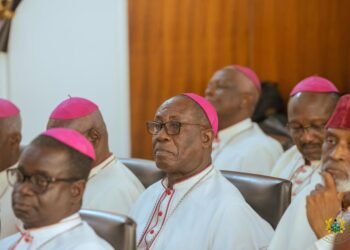The Parliament of Ghana is set to resume sitting on Tuesday, May 27, 2025, for the Second Meeting of the First Session of the Ninth Parliament of the Fourth Republic.
This was officially communicated by the Speaker of Parliament, Rt. Hon. Alban Sumana Kingsford Bagbin, in a formal notice dated May 12, 2025.
Pursuant to Order 58 of the Standing Orders of Parliament, the Speaker announced that the meeting will commence at 10:00 a.m. at the Parliament House in Accra.
As Parliament reconvenes, the House is expected to deliberate on a number of key legislative items that are pivotal to Ghana’s governance and national development trajectory.
Prominent among these is the anticipated introduction of a new Scholarships Authority Bill. President John Dramani Mahama, in earlier public remarks, disclosed that the bill has already received Cabinet approval.
The legislation seeks to streamline the administration of government scholarships, remove ambiguities in allocation, and—most significantly—bar political appointees from accessing such benefits.
The move comes amid longstanding public concerns over the perceived politicisation and unfair distribution of scholarships, particularly under successive governments.
Should the proposed bill be passed, it would mark a significant policy shift towards merit-based and depoliticised scholarship disbursement, aimed at promoting fairness and equity in the allocation of public educational support.

Legislation against Galamsey
Another critical item expected to appear on Parliament’s agenda is the consideration of Legislative Instrument (L.I.) 2462, which was initially presented to the House during its first meeting earlier this year.
This LI seeks to amend the Environmental Protection (Mining in Forest Reserves) Regulations. The amendment process is part of a broader policy push by the Mahama administration to address environmental degradation, particularly in forested areas that have come under increasing threat from mining activities.
In alignment with this environmental reform agenda, President Mahama has also signaled his government’s readiness to amend the Minerals and Mining Act, 2003 (Act 703).
The amendment would result in a complete and unambiguous legal ban on mining within Ghana’s forest reserves.
The move has been described by the President as an effort to “effectively, meticulously, legally, and entirely” outlaw mining activities in protected forest zones.

This policy shift is expected to draw considerable debate in Parliament, especially from constituencies with mining interests, even as environmental advocates welcome the bold legislative initiative as long overdue.
In the extractive sector, Parliament will also be expected to review and potentially ratify the controversial Ewoyaa Lithium transaction.
This deal, centered on one of Ghana’s most significant emerging mineral resources, has attracted national interest given the global demand for lithium and its importance to the electric vehicle and battery manufacturing industries.
While the government views the deal as a potential economic game changer, questions have been raised regarding the transparency, valuation, and local benefit-sharing components of the agreement.
Mid-Year Budget Review
Furthermore, the Finance Minister is scheduled to appear before the House in either June or July for the presentation of the Mid-Year Budget Review.
This session will provide an opportunity for Parliament to assess the government’s fiscal performance for the first half of 2025 and review projections for the remaining half.

In all, the upcoming meeting of Parliament promises to be one of the most consequential in recent times.
The legislations ranging from economic planning and mineral governance to environmental protection and education, underscore the significance of the upcoming meeting.
The social, environmental, and economic fabric of Ghana will be permanently impacted by the decisions and direction made during this session.
Increased civic vigilance and citizen engagement are also opportunities presented by the return of Parliament.
The public will have higher expectations for accountability, openness, and productive bipartisan discussion as these important issues are brought up and discussed.
In the coming weeks, public advocacy and policy interest groups are likely to mobilize around the push to ban mining in forest reserves and to reform scholarship access.
READ ALSO: Kosmos Energy to Inject $2 Billion into Ghana’s Upstream Petroleum Sector




















